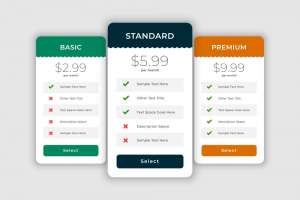The business payments landscape has undergone a remarkable transformation in recent years. As we navigate through 2025, companies are increasingly abandoning traditional payment methods in favor of sophisticated digital solutions that offer speed, security, and efficiency.
Modern businesses now have access to an array of powerful tools that automate payment processes, enhance cash flow management, and provide real-time financial visibility.
At the same time, traditional payment methods are evolving. Although many transactions are now processed instantly, physical checks continue to play a crucial role in certain B2B and regulatory contexts. This has driven the growth of check printing companies, which have modernized their services from basic bulk printing to integrated, cloud-based check-writing solutions.
Today, these platforms offer high-security features, automated mailing, and accounting integration, bridging the gap between paper checks and digital efficiency.
This article examines the leading digital payment tools that are transforming the way businesses manage their financial operations in 2025.
1. Cloud-Based Payment Platforms
Cloud-based payment platforms have emerged as the backbone of modern business finance operations. These comprehensive solutions enable companies to manage all payment activities from a centralized dashboard accessible from anywhere with internet connectivity.
Platforms like Stripe, Square, and PayPal Business continue to dominate this space, offering features such as automated invoicing and multi-currency support.
According to Investopedia, one advantage of PayPal is its large, multi-service platform that offers diverse services that many other digital payment systems lack. Square enables retailers to sell both in-person and online, offering point-of-sale options, eCommerce integration, invoicing, and contactless payments.
Stripe, available in 46 countries with plans for further expansion, charges transparent fees of 2.9% plus 30 cents per transaction. Its self-hosted checkout process keeps customers on the business owner's site instead of redirecting them externally.
The cloud infrastructure ensures that payment data is synchronized across all devices in real-time, allowing finance teams to collaborate seamlessly.
2. Digital Wallet Solutions for B2B Transactions
Digital wallets are transcending consumer use, becoming a frontrunner in B2B transactions. These software-based systems, including specialized B2B solutions, allow companies to make instant payments to vendors and suppliers on mobile devices.
Storing credentials securely, these wallets support various methods, including bank transfers and crypto. Their key advantages for business include speed (payments clear in minutes) and enhanced security via tokenization and biometric authentication.
For businesses, adoption means not only convenience but also reduced transaction costs and valuable insights. Embracing this technology provides a competitive edge by meeting the growing demand for secure and convenient payment methods.
3. Automated Check-Writing Software
Checks remain a necessary payment method for many businesses, especially when working with vendors who have not adopted electronic payments. Modern check-writing software has transformed this traditional method into a streamlined digital process.
These solutions integrate with accounting systems to automatically populate payee information, amounts, and memo lines, reducing errors from manual writing. Advanced features include batch processing, digital signatures, bank reconciliation, and audit trails for compliance.
According to SmartPayables, it is legal to print checks at home if specific requirements are met. These include using proper check stock paper, magnetic ink (MICR) for the MICR line, and a compatible printer to ensure readability and processing by banks. Some software even allows checks to be sent electronically, combining the familiarity of checks with digital delivery speed.
4. AI-Powered Invoice Management Systems
Artificial intelligence is transforming invoice processing and accounts payable workflows in 2025. AI-powered platforms automatically extract data from invoices in any format, whether emailed, scanned, or attached as PDFs. These systems learn from each transaction, improving accuracy over time while detecting anomalies and potential duplicate payments.
Smart routing ensures invoices reach the right approvers based on predefined rules, and payment scheduling optimizes cash flow by suggesting ideal payment dates. The efficiency gains are significant, with businesses reporting a significant reduction in invoice processing time, allowing finance teams to focus on strategic tasks.
The market reflects the adoption rate. Market.Us projects the AI for invoice management market will reach $47.1 billion by 2034 (from $2.8B in 2024), demonstrating a 32.6% CAGR. North America, specifically the U.S., leads this adoption, holding over 43.6% of the global share in 2024.
5. Cryptocurrency Payment Processors
Cryptocurrency has evolved from a speculative asset into a legitimate payment method for forward-thinking businesses. Platforms like BitPay, Coinbase Commerce, and CoinGate allow companies to accept Bitcoin, Ethereum, and other cryptocurrencies while minimizing volatility risk. Payments can be instantly converted to traditional currency, protecting businesses from price fluctuations.
Beyond trendiness, crypto transactions often have lower processing fees than credit cards, particularly for international payments and cross-border transactions. Blockchain technology ensures transparent, immutable transaction records, simplifying auditing and compliance.
This adoption is supported by crucial regulatory clarity. According to the BBC, U.S. lawmakers passed the GENIUS Act, the first major national cryptocurrency legislation, creating a regulatory framework for stablecoins. This bill, supported by President Trump, signals growing institutional acceptance of cryptocurrency, and adoption of crypto payments is expected to accelerate through 2025 and beyond.
Frequently Asked Questions
Are digital payment tools secure for business transactions?
Yes, modern digital payment tools employ bank-level encryption, multi-factor authentication, and tokenization to protect financial data. They undergo regular security audits and comply with industry standards like PCI DSS. Most platforms also offer fraud detection algorithms and provide liability protection for unauthorized transactions, making them more secure than traditional methods.
What is the future of digital payment systems?
The future of digital payment systems points to faster, more secure, and seamless transactions. AI, blockchain, and mobile wallets will drive automation, real-time processing, and transparency. Integration with business operations, regulatory clarity, and global adoption will make digital payments the standard, enhancing efficiency for both consumers and enterprises.
Can small businesses benefit from these digital payment tools?
Absolutely. Many digital payment platforms offer scalable pricing models with low or no monthly fees for small businesses, charging only per-transaction fees. These tools level the playing field by providing small businesses with enterprise-grade payment capabilities without requiring significant upfront investment. The automation features are particularly valuable for small teams with limited administrative resources.
Digital payment systems are reshaping how businesses manage transactions, combining speed, security, and efficiency. From AI-driven platforms to cryptocurrency processors and modern check solutions, companies can streamline operations and reduce errors. As technology and regulation evolve, adopting these tools will be key to staying competitive in 2025 and beyond.






